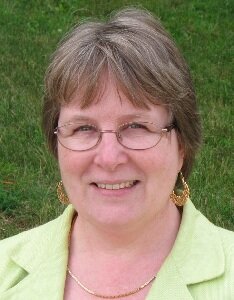Susan M. Robey-Bond, Ph.D.
Meet the Researcher
Susan Robey-Bond, Ph.D. received a B.A. in chemistry from Macalester College in Minnesota and her Ph.D. in toxicology from the University of Rochester, New York. She conducted postdoctoral research at Cornell University and the University of Vermont on antioxidants and DNA repair mechanisms before her appointment as a Research Associate in Biochemistry, studying histidyl-tRNA synthetase, at the University of Vermont.
The Research
University of Vermont and State Agricultural College
The Role of a Mutation in Histidyl-tRNA Synthetase in Usher-like Syndrome Deafness
An Usher-like syndrome, comprising deafness, blindness, and fever-induced hallucinations was recently discovered, caused by recessive inheritance of a mutation in histidyl-tRNA synthetase (HARS). The HARS enzyme is required for protein production in cells: it attaches the amino acid histidine to a transfer ribonucleic acid (RNA) molecule which activates and transports the amino acid to the ribosome for protein synthesis. We will measure the effects of this mutation on the molecules required for protein synthesis. Preliminary results suggest HARS may be chemically modified by the cell, and that mutant HARS is modified differently, which is evidence HARS may have roles in the cell separate from its known function in protein synthesis. We additionally propose to determine the interactions of HARS and mutant HARS with other cellular proteins, specifically in cells derived from embryonic mouse inner ears, as a first step in elucidating a different role for HARS in hearing.
Research area: Usher and Usher-like syndrome deafness
Long-term goal of research: Our long term goal is to describe the specific role HARS, and the HARS mutation, plays in sensory cell development and maintenance. With a greater understanding of the proteome - the expressed proteins and protein interactions of a cell - during different stages of development of affected cells, we hope to discover more potential avenues for therapy to prevent or alleviate symptoms of Usher and Usher-like syndromes.


